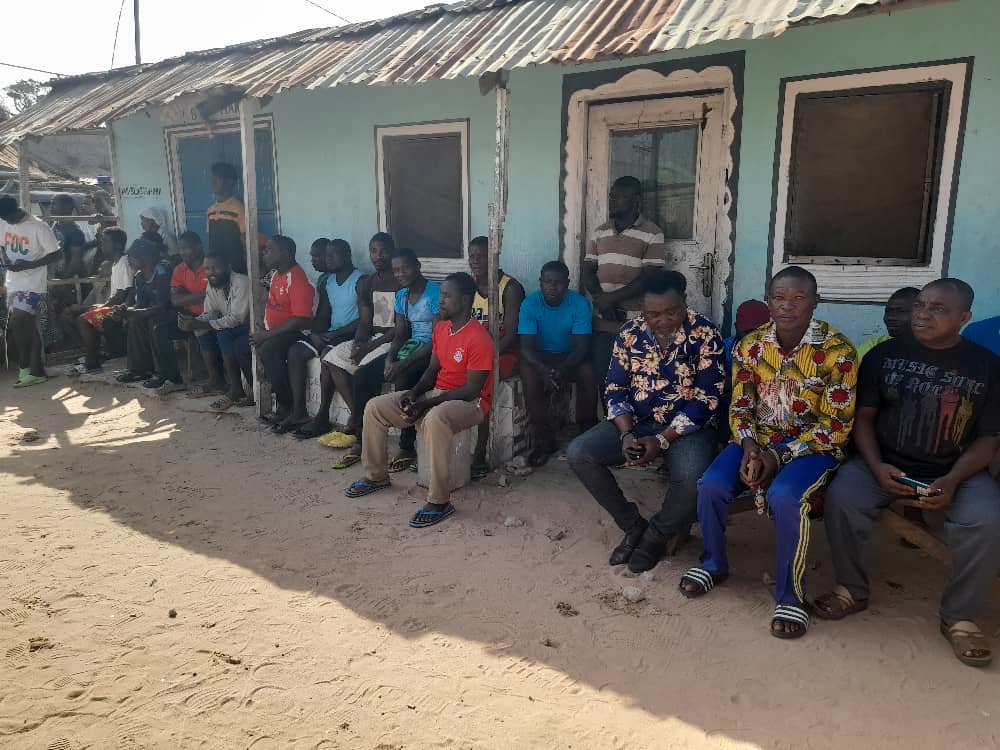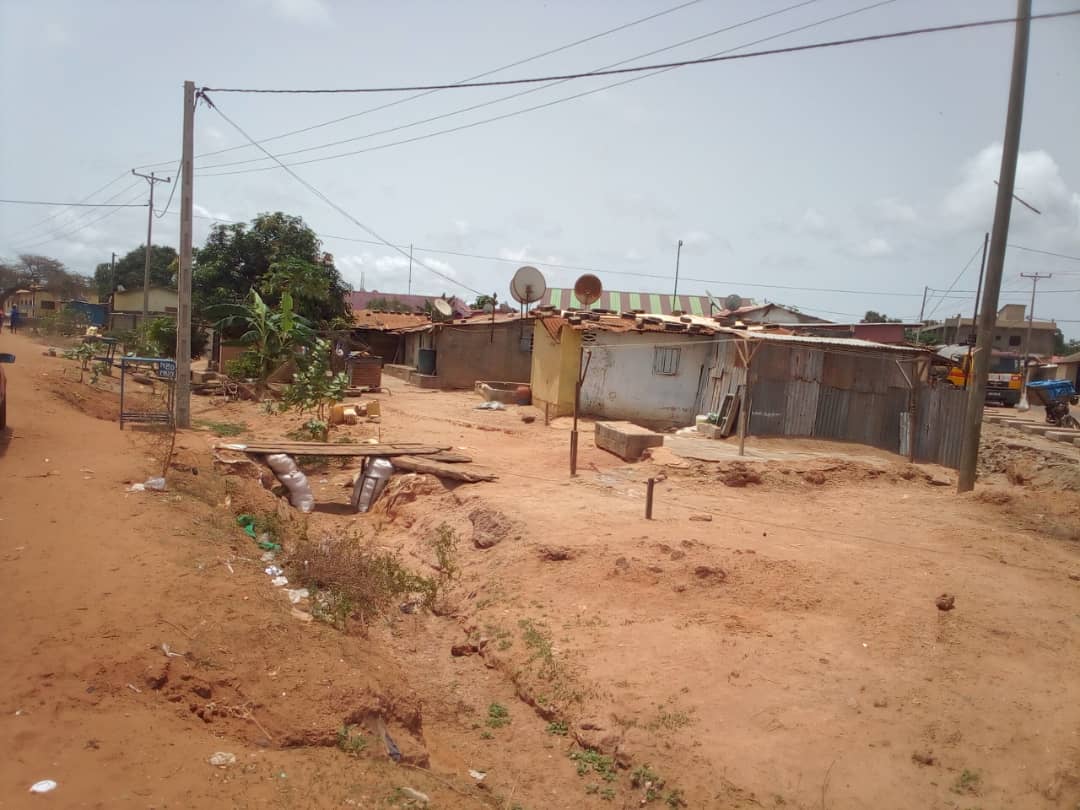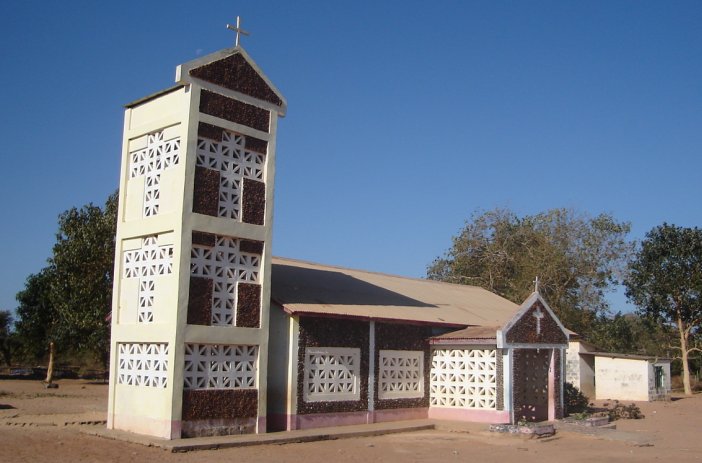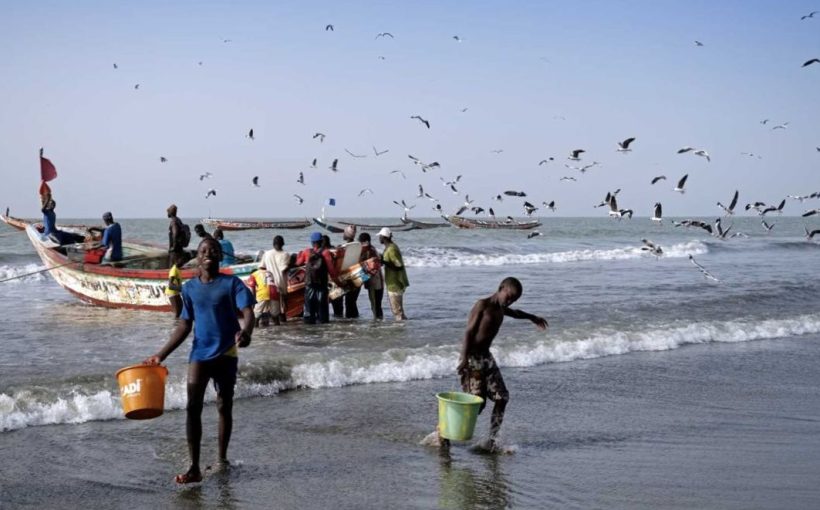By: Fabakary B. Ceesay & Buba Gagigo
In 1960, 36 sailors from a tiny fishing village of Akunfi lmuna in the Central Region of Ghana sailed to the then British colony of the Gambia.

A population estimated at a little above 1,500 inhabitants, but better known and famous for fishing along the Kombo seashore in the West Coast of the Gambia, adjacent to the historical site of “Sanementareng” in Brufut, lays Ghana Town, inhabited by people presumed by many as emigrants from Ghana. Not knowing the fact that the tiny shanty settlement had been in existence before the Gambia gained her independence in February of 1965.
Several founders of the settlement voted in the country’s first election which paved the way to attaining independence on 18th February 1965.
But during the last part of the first Republic, the second and now the third republic, their offspring faced an institutionalised non-citizenship after more than five decades of the arrival of their parents and grandparents in the Gambia and have since been contributing to every developmental aspect of the country.
Mr. Jonathan Arkoh’s grandparents were among the founders of the settlement, in early 1962, his Mother was among the first to be born in Ghana Town. His mother’s parents settled in Brufut years before Gambia attained independence, though his father came from Ghana later afterwards.
But when it comes to citizenship (nationality), Jonathan finds it very difficult to acquire any national documents of his birth country or his father’s native country. Though, after a frustrating long shuffling between offices of the authorities of the Gambia, he was able to prove his Gambian citizenship and was issued Gambian national documents.
Mr. Arkoh is not alone in this fight; several others like him born and raised with him are facing the same situation. Notwithstanding, after assuming Gambian citizenship, the renewal of the same documents is another tough moment for them. The authorities in charge of issuance of national documents always told them that Ghana Town is “on hold”.
It took Jonathan a year before he was issued with Gambian Passport, after doing all the necessary procedures; he was put on hold for a year before his application could be approved. But many are still yet to be lucky like him.
Mr. Ismaila Jagne is the settlement’s Alkalo (Chief), he is of a Gambian-Ghanaian parents, described the dilemma of his town’s settlers as a serious misunderstanding based on the assumptions of authorities categorising all the settlers as foreigners. Though, he accepts the fact that many of the settlers did not integrate with native Gambians or acquire citizenship by marriage or naturalisation.
Alkalo Jagne also admitted that there are many unqualified migrants among them caught attempting to acquire Gambian citizenship through fraudulent means, making it harder for the eligible ones.
Mr. Jagne lamented that the matter is not of today but of the second republic, but things got easier for many when late Ghanaian President John Jerry Rowling visited the Gambia and had a discussion with people of Ghana Town, where they lodged their frustration of acquiring either Ghanaian or Gambian citizenship with him.
The two former Presidents Rowlings and Yahya Jammeh were able to reach an agreement which paved ways for many to acquire Gambian documents as citizens. But, that was short lived for many, after expiration of their documents, renewals became a big headache.
Since the agreement of Jammeh and Rowling, according to both Mr. Arkoh and Alkalo Jagne, many have been rejected by the authorities or put on hold but the Gambian Immigration Officers are not frequently raiding the place for payment of residential permit (Alien card).
On the contribution to the development of the Gambia and its economy, these classified “irregular (illegal) migrants”, are not only into fishing, but also produce qualified skills in trades like carpentry, electrical, masonry, welding among others.
Their major predicament is not only being classified as people with no “nationality”, but accessing and attaining higher education and to work at government and other higher institutions is a big yoke to carry.
Though, they build their own school with teachers from the community, yet still their education is short lived as the large quantity of students doesn’t have hope in getting to a higher level.
“Here we only go to school to read and write because there is no feature in it for us. We all ended up in the sea, fishing as a trade for survival”, lamented Mr. John Mensah.
Mr. Mensah is also a victim of the system, he can only remember two natives of their settlement that made it to the university but found it difficult to acquire Gambian citizenship when they want to further their education abroad after securing an admission into a foreign university.
Mr. Ousman Sambou is a native of main Brufut, but working at Ghana Town as a representative of Brufut Village Development Committee (VDC). His job is to make sure all business owners operating with the fishing settlement pays his or her dues to the VDC, said many at times the authorities caught many migrants with forged documents claiming Gambian citizenship which makes matters worse for many to be trusted.
He said they as community leaders and elders make sure such incidents are avoided.
Though, some of them were smuggled into the Gambia illegally but refutes elements of human trafficking or exploitation of labour of others for the benefit of some.
However, migrants from West African countries like Nigeria, Sierra Leone and Togo among other recent arrivals do claim Ghanaian citizenship to easily blend within the community to assume Gambian citizenship.
Many of such attempts were made but according to Alkalo Jagne, VDC’s Sambou and Mr. Arkoh, they are very vigilant on such issues and those found wanting are directed to the proper authorities to regularise their residency.

The nature of the structures that housed the residents of this small fishing town is very scanty and almost impossible to re-structure. When the settlement was found, it was a thick forest inhabited by wild animals, but with the courage of the founders and support given by the native land owners from Brufut, they were able to build structures so adjacent for security and safety of each other.
The houses were so built into each other and so crowded that there is no major path where two bicycles can pass freely. The formation and the nature of structures seriously hamper the expansion of the town, thus making it difficult to have big streets.

Though, there is a Church and Mosque, both headed by natives of the settlement, but not enough space for burial. Land to use as a cemetery is another matter they are facing.
The residents have big ambitions to expand and build better houses, but the only land they can expand into is the seaside, which is marked by the government as a Tourism Development Area (TDA). Both the Ministry of Lands and Physical Planning Department would not give them any green light to move into that area and the native land owners are not ready to give them another land.
To be precise, ninety percent of residents of Brufut- Ghana Town prefer and classify themselves as Gambian and not Ghanaian. But yet still their dilemma of a statelessness persists over their heads.
They are neither Gambian, nor Ghanaians.
However, on two occasions, when the spokesperson of Gambia Immigration Department, Mamanding Dibba was contacted, said he is never aware of any stateless or such nationalities living in the Gambia and the issue of Ghana town is news to him unless he consulted with the relevant authorities who are familiar with the matter. He asked for more time to consult the top authorities.
On the third attempt, PRO Dibba said he cannot officially confirm the matter until further notice.

